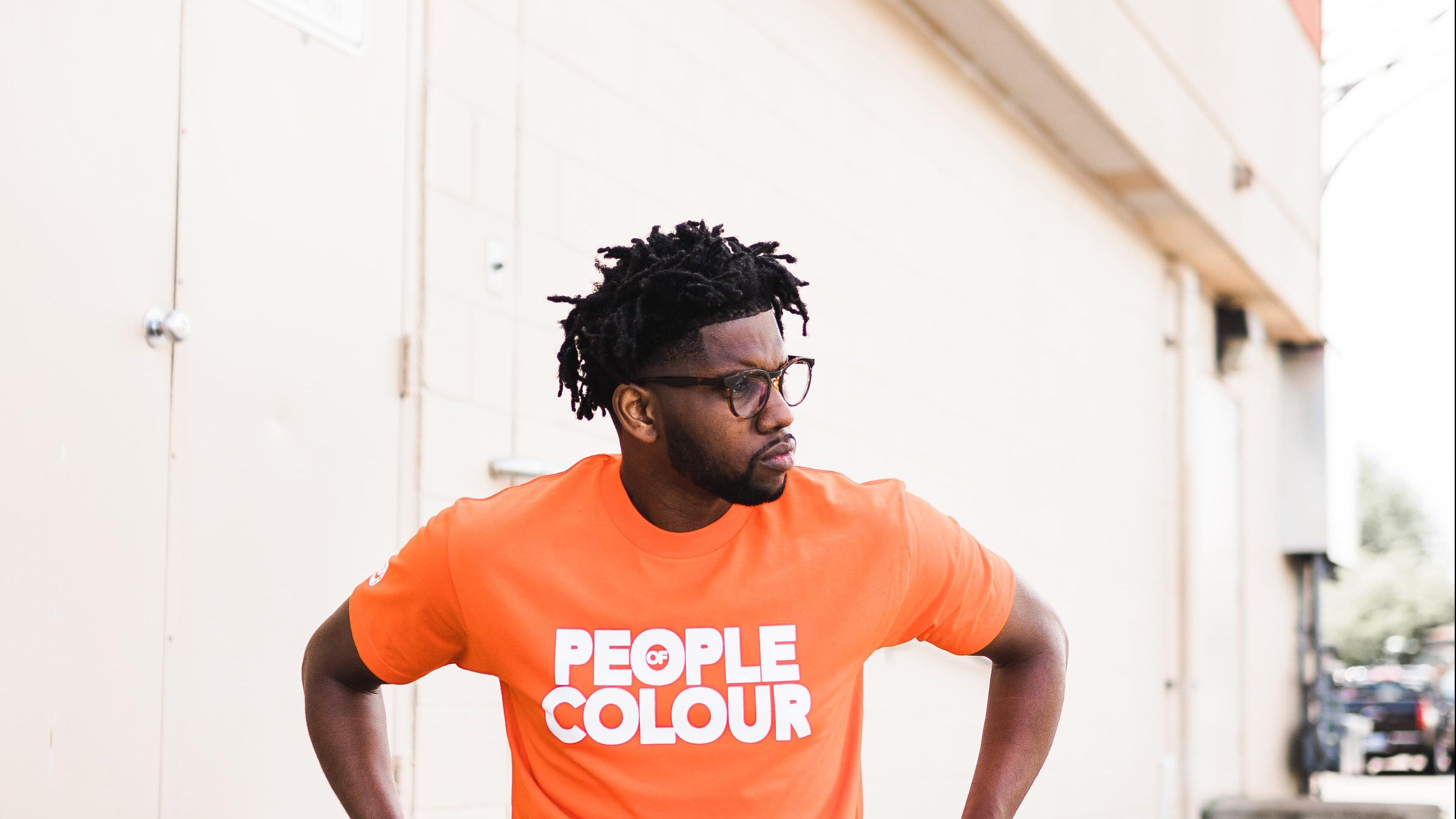WW presents "Distant Voices," a daily video interview for the era of social distancing. Our reporters are asking Portlanders what they're doing during quarantine.
Darius Northern drove 45 hours from Tennessee to study horticulture at Oregon State University. He wanted to make gardening cool so people would grow healthy food.
But Oregon didn't seem so cool to him. A tall, Black man, he often got stereotyped. People asked if he played football, or basketball, or if he ran track. He was puzzled because Oregon had a reputation for being tolerant, open-minded, and inclusive.
"It is that for a certain kind of person," Northern says.
It became exhausting for Northern to go out. It made him anxious.
So, using equipment that he learned to operate on YouTube, he started making T-shirts in his dorm room that challenged the white majority to see its bias.
At OSU, he always sat in the front row in class, so people could see the messages on his back. One shirt read, "This is awkward, but instead of staring, act like you've seen a Black person before," while others were emblazoned with things like "Diversity and inclusion programs do not mask toxic work and learning environment," and, "I acknowledge my inherited privilege based on the construct of whiteness."
"I wanted to flip the script from me being uncomfortable in my environment to people having to think about and internalize their racial identity," Northern says.
His messages struck a chord. Soon, people were asking to buy his shirts.
So Northern decided to start People of Colour Clothing. Once he started advertising his work on Instagram, orders flooded in.
When COVID-19 hit, he thought his young company would die. He even looked into working at the U.S. Post Office. But the killing of George Floyd opened many people's eyes to the scourge of racism, and his messages resonated even more.
He still wants to be a gardener, and he still has all his tools. For now, though, he has a message to spread—lots of them, in fact—on People of Colour gear.

